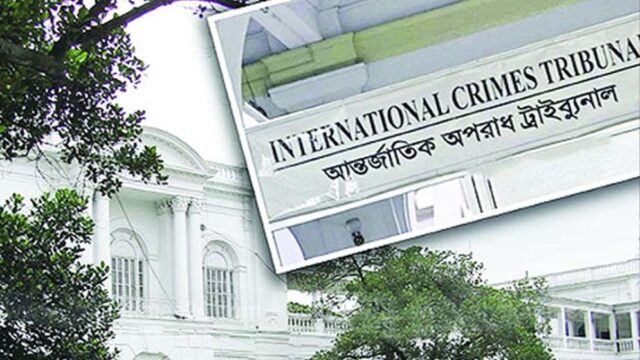Prosecutor Gazi Manowar Hossain Tamim stated that the International Crimes Tribunal (ICT) can now prosecute foreign nationals if they commit crimes against humanity. He made this announcement during a press conference held at the tribunal on Monday, November 25, regarding the amendment to the International Crimes Tribunal Act of 1973.
According to Tamim, the amendment aligns the law with international standards. He explained, “This amendment addresses concerns previously raised under international law and ensures all aspects of the tribunal meet global standards. The government finalized this amendment yesterday. Earlier, there was no dedicated provision for defense counsel. Now, a special section has been added, ensuring the accused have broader rights, including comprehensive access to present their statements.”
Broadening Jurisdiction
Tamim further explained that previously, the law only applied to crimes committed within Bangladesh’s territory. With this amendment, crimes committed outside the country or by foreign nationals on Bangladeshi soil can now be prosecuted under the ICT. The amendment also redefines enforced disappearances according to international benchmarks and establishes special provisions for their prosecution. Additionally, a compensation clause for victims, absent in the original act, has been incorporated.
Appeals and Changes
The amendment also allows appeals to the Appellate Division against interim orders issued by the tribunal, which could previously be challenged only in cases of contempt of court. Tamim elaborated, “Earlier, the law permitted appeals solely against armed forces personnel. Now, the term has been updated to ‘members of disciplinary forces,’ including police, RAB, BGB, intelligence agencies, and Ansar forces.”
Extended Time for Defense Preparation
Tamim highlighted another critical change, stating that the defense would now be given six weeks instead of three to prepare their case. He said, “Previously, during charge hearings, the defense faced challenges as they had to provide the names of all witnesses upfront. Now, the law allows witnesses to be presented at any stage of the trial. This amendment will be retroactively effective from 2009.”
This significant reform is seen as a step towards modernizing the International Crimes Tribunal and ensuring justice aligns with international legal norms.










